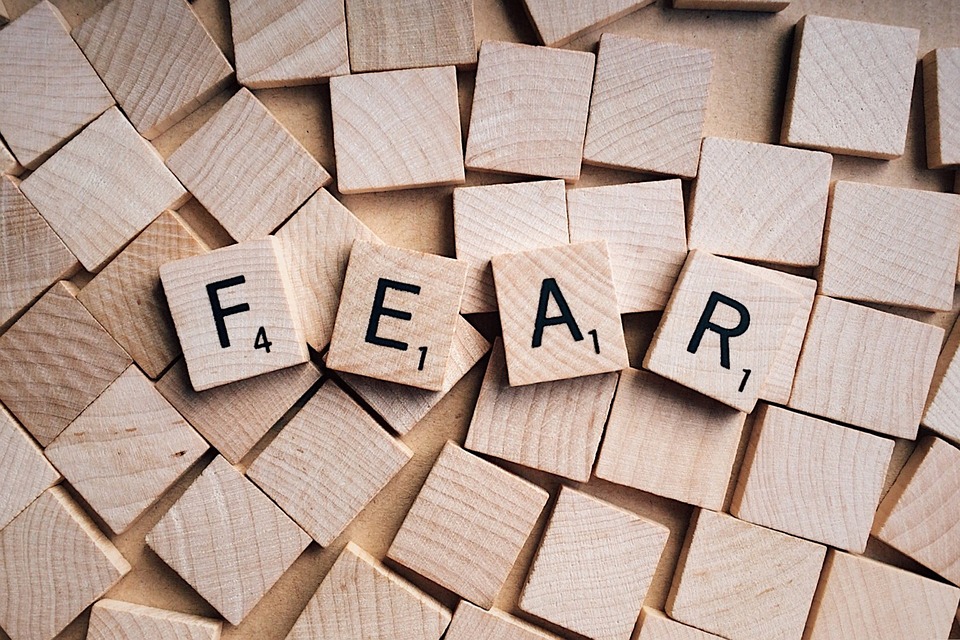A Powerful Tool for Increasing Self-Awareness
Summary Points:
- Most of our thoughts are stored in our subconscious
- Unfiltered writing can uncover unknown perceptions of yourself
- Can’t reality check your thoughts until you know what they are
read time: 6 minutes
One of the most powerful tools I use to grow my self-awareness is called “stream of consciousness writing.” First of all, what is it? It’s a process where I either set a timer for myself (5 min, 8 min, 10 min) if I’m writing free-hand, or I use a website like 750words.com which tracks how many words I have written, and then I just write. The “rules” for this are as follows:

1. Do not stop writing, no matter what, until the time is up or the word goal is hit
This means, that even if I lose my train of thought, I literally type whatever comes to mind. For example: “and I just forgot what I was thinking about but I know I am supposed to keep writing without stopping so I will keep writing my thoughts until I remember where I was or the next thought picks up, and I’m thinking yes, oh I remember, I was thinking about the meeting yesterday and how I felt when my employee jumped in and said that I wasn’t listening…”
2. Do not filter yourself
I write this for me, and nobody else. The majority of the time, I do not even go back and read what I wrote. The value for me comes in what I learn and notice when I follow my stream of consciousness. When I know that I will not share this with anybody else, then I allow all my thoughts to just go where they go: The ugly thoughts, the mean thoughts, the hurt thoughts, and also the grateful thoughts, the reasonable thoughts, and the beautiful thoughts.
In daily conversation, most of us filter ourselves. We have thoughts that we think but do not say, feelings that we notice and keep to ourselves, and ideas that never see the light of day because they stay tucked away in our brains. We start to shut off parts of our brain when we do this, and then we’re no longer able to fully understand our experiences. I have thoughts and feelings that stay in my subconscious, and as long as they stay there, they will continue to affect me in ways that I do not understand and do not appear to have control over.
By removing the filter and setting aside (or completely discarding) self-judgment, I allow thoughts and feelings to surface, and now I DO understand how they affect me, and I realize that I DO have control over them. After all, my thoughts come from me, and I have an inside track to shift the thoughts into thoughts that serve me well.
My thoughts come from me, and I have an inside track to shift the thoughts into thoughts that serve me well.
3. Give yourself a prompt
I find my stream of consciousness writing is most profound when I ground myself with a specific topic or issue that I want to understand more. Often, I write about the times and places in my life where I feel stuck, or where I catch myself in a defensive place like blaming or playing the victim. It isn’t a silver bullet for me, but I would say about 60-70% of the time when I write, I learn something new about myself, or I uncover a deeper story I’m telling myself about a situation, so I learn what is driving my thought, feelings, and behavior.

Here’s an example:
I had a client that had developed a new habit of canceling or changing our plans with very short notice. I’ve had experience working with lots of types of companies, and sometimes start-ups are operating in a bit of a crisis mode. They occasionally decide to reschedule or postpone our sessions to manage a “fire” that has come up. It had happened more than once in a row, and I was conscious of my frustration with the situation and found myself in “blaming” mode (internally). I noticed some mounting anxiety as I got closer in time to my scheduled meeting with the CEO. I realized it was because I was stuck in this “blaming” mode, and I knew that was not how I wanted to show up with my client. It goes against everything I’m about, including self-accountability, collaboration, and self-awareness. I knew I was only blaming because I was deflecting fear, but I wasn’t sure of what. So, I wrote about it. Part of what I uncovered in that process is that I was afraid that they would cancel our contract, either because they continued to prioritize other things and they would decide to stop our work altogether, or because I would push (too hard) on them to make this a priority, as I knew it was a critical step for them to maximize their potential and increase their likelihood of succeeding (as defined by them).

Once I uncovered the fear behind my “blaming” mindset, I was able to reality check it.
So first of all – is this fear a real possibility?
Yes, absolutely. They could decide to cancel the contract.
Second of all – how likely is it?
I estimated 50/50 on this one – so fairly likely, in terms of uncovering a fear that could be realized.
Third of all – if that happened, could I cope with it?
Can I cope with one of my (multiple) clients ending a contract part-way through? Financially, yes. Emotionally and psychologically? Yes, absolutely. In fact, not having the erratic engagement in my work-life would likely bring me more peace and fulfillment. And long-term, doing what is good for me, could I cope with it? Could I cope with the idea that I “failed” and this client wanted to end the contract? As a recovering perfectionist, it is still hard for me at times to acknowledge a failing on my part. Yet I know and believe that I will be a better consultant and coach in 10 years than I am now, so does that mean I have ways I can be better right now? Of course! Can I cope with learning from this process? Yes, definitely.
Ask yourself: If that happened, could I cope with it?
Now what do you do?
Once I uncovered the fear and realized I could cope with it, my courage grew, and I was able to show up authentically, openly, and honestly with my client, and find out if they were genuinely engaged in the process, and if they want to continue or not. I was no longer afraid of the answer to that question.

Next time you feel confused, stuck, frustrated, or catch yourself in a defense mode, like playing the victim, blaming or being the critic, or just noticing that the world is not responding to you in the ways you would want and expect – consider using stream of consciousness writing to uncover a deeper understanding of what is going on for you.
Ready to take your leadership to the next level? Get your FREE copy of my eBook, Level Up: 3 Steps to Be a Better Leader. Click here to download!

2 replies on “A Powerful Tool for Increasing Self-Awareness”
This post was truly worthwhile to read. I wanted to say thank you for the key points you have pointed out as they are enlightening.
Thank you Linda! I appreciate you reading and making the time to leave comment. Cheers!